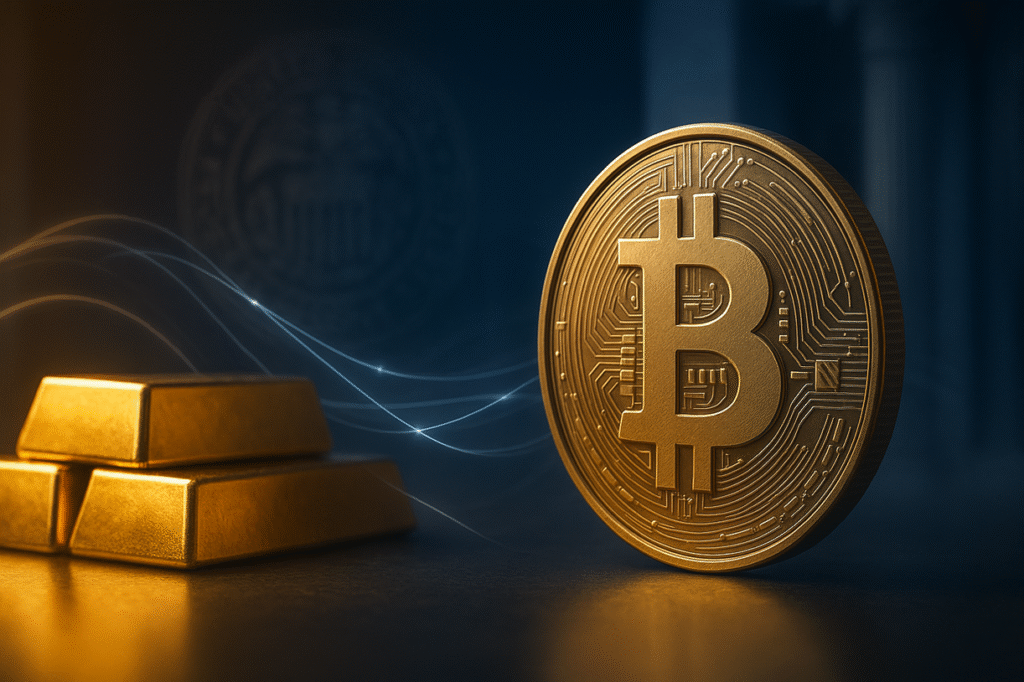In the evolving landscape of cryptocurrency, understanding the nuances of digital assets is crucial for investors and enthusiasts alike. With the rise of Bitcoin and its characterization as “digital gold,” it’s essential to navigate this space with informed perspectives. This guide delves into the viewpoints of key financial leaders and explores Bitcoin’s role in the modern financial ecosystem.
Bitcoin: Understanding Its Role as Digital Gold
Bitcoin has often been likened to electronic gold, an analogy that encapsulates its perceived value and function within the financial markets. Federal Reserve Governor Christopher J. Waller emphasized this perspective, noting Bitcoin’s nature as a non-yielding store of value, driven primarily by collective trust rather than intrinsic cash flows. His insights, shared during the “Crypto in America” livestream on October 21, 2025, underscore Bitcoin’s resemblance to commodities like gold, which hold their worth through market belief.
Federal Reserve Insights on Bitcoin
Governor Waller has consistently described Bitcoin as a wealth-preservation vehicle, differentiating it from traditional currency and payments systems. This perspective aligns with comments from Federal Reserve Chair Jerome Powell, who highlighted Bitcoin’s speculative nature, likening it to gold in its digital form. Both leaders concur that Bitcoin’s primary value lies in its acceptance as a store of value, akin to precious metals, rather than its utility as a transactional medium.
Bitcoin’s Market Position
The analogy of Bitcoin to gold has significant implications for its market perception and value. By framing Bitcoin as “digital gold,” both Waller and Powell have reinforced its status as a belief-driven asset. This positioning suggests that Bitcoin’s value is sustained by market confidence and the expectation of future appreciation, much like traditional commodities.
Implications for Investors
Investors considering Bitcoin as part of their portfolio should acknowledge its unique position as a speculative asset. Its value is largely driven by market sentiment rather than tangible earnings or yields. As an asset outside traditional banking channels, Bitcoin offers a distinct form of value storage, appealing to those seeking diversification away from fiat currencies and more conventional investments.
FAQs on Bitcoin’s Role and Value
Is Bitcoin a viable investment compared to traditional assets?
Bitcoin can be a compelling addition for investors seeking alternative assets. Its digital nature and limited supply often position it as a hedge against inflation. However, like any investment, it carries risks that should be weighed against potential returns, requiring thorough market analysis and risk assessment.
How does Bitcoin’s role compare to stablecoins?
Unlike Bitcoin, stablecoins are designed for stability and transactional use, backed by reserves or algorithms to maintain a stable value. Bitcoin’s value proposition lies in its scarcity and acceptance as a store of value, making it more similar to commodities like gold than transactional forms like stablecoins.
What should be considered before investing in Bitcoin?
Prospective Bitcoin investors should consider market volatility, regulatory developments, and broader economic trends. Understanding Bitcoin’s unique risk factors, including cybersecurity concerns and market speculation, is crucial for making informed investment decisions.
This comprehensive guide to Bitcoin offers insight into its fundamental technology, investment appeal, and market positioning. By exploring its role through expert perspectives, readers can make more informed choices in the ever-evolving landscape of digital currencies.

